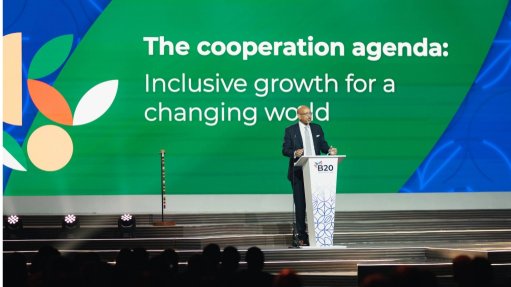India extends auction for deep-sea blocks containing critical minerals
NEW DELHI - India has extended an auction of deep-sea blocks containing critical minerals used in electric vehicle batteries and other products until May 1, a spokesperson at India's Ministry of Mines said on Wednesday.
China is a top global producer of 30 of the 50 minerals considered critical by the US Geological Survey, but has been curtailing exports recently amid trade tensions with the United States.
India in November launched the first tranche of an auction of 13 offshore deep-sea mineral blocks, including three lime mud blocks, three construction sand blocks, and seven polymetallic nodule blocks.
The blocks contain critical minerals including cobalt, copper, manganese, and nickel.
An initial bid deadline of February 27 was bumped to April 2 and has been extended again, the ministry spokesperson confirmed.
"We have received queries from companies that want to study the blocks and have asked for time," a source told Reuters, declining to be identified as they were not authorised to speak to the media.
Another source said the move was aimed at encouraging wider participation from potential bidders.
Opposition parties have called for the auction to be cancelled citing risks to the environment and local media have reported protests led by fishermen in the southern state of Kerala.
Earlier this month, the mines minister in a written reply to parliament said the ministry had consulted the environment ministry, department of fisheries and others before launching the auction.
India currently lacks the seabed mining expertise to extract minerals, experts say.
Some Indian mining and cement companies have approached Dutch shipbuilder Royal IHC for technical assistance as they prepare to bid for deep-sea blocks, Reuters reported last month.
New Delhi has also had limited success in its onshore critical minerals auction, with only about half of the 48 blocks awarded to bidders.
Yet India is keen to accelerate seabed mineral exploration to boost the supply of raw materials critical for its energy transition.
The world's third-largest emitter of greenhouse gases, it aims to add 500 gigawatts (GW) of renewable energy by 2030, up from 165 GW currently, while aiming for net zero emissions by 2070.
Article Enquiry
Email Article
Save Article
Feedback
To advertise email advertising@creamermedia.co.za or click here
Comments
Press Office
Announcements
What's On
Subscribe to improve your user experience...
Option 1 (equivalent of R125 a month):
Receive a weekly copy of Creamer Media's Engineering News & Mining Weekly magazine
(print copy for those in South Africa and e-magazine for those outside of South Africa)
Receive daily email newsletters
Access to full search results
Access archive of magazine back copies
Access to Projects in Progress
Access to ONE Research Report of your choice in PDF format
Option 2 (equivalent of R375 a month):
All benefits from Option 1
PLUS
Access to Creamer Media's Research Channel Africa for ALL Research Reports, in PDF format, on various industrial and mining sectors
including Electricity; Water; Energy Transition; Hydrogen; Roads, Rail and Ports; Coal; Gold; Platinum; Battery Metals; etc.
Already a subscriber?
Forgotten your password?
Receive weekly copy of Creamer Media's Engineering News & Mining Weekly magazine (print copy for those in South Africa and e-magazine for those outside of South Africa)
➕
Recieve daily email newsletters
➕
Access to full search results
➕
Access archive of magazine back copies
➕
Access to Projects in Progress
➕
Access to ONE Research Report of your choice in PDF format
RESEARCH CHANNEL AFRICA
R4500 (equivalent of R375 a month)
SUBSCRIBEAll benefits from Option 1
➕
Access to Creamer Media's Research Channel Africa for ALL Research Reports on various industrial and mining sectors, in PDF format, including on:
Electricity
➕
Water
➕
Energy Transition
➕
Hydrogen
➕
Roads, Rail and Ports
➕
Coal
➕
Gold
➕
Platinum
➕
Battery Metals
➕
etc.
Receive all benefits from Option 1 or Option 2 delivered to numerous people at your company
➕
Multiple User names and Passwords for simultaneous log-ins
➕
Intranet integration access to all in your organisation

















